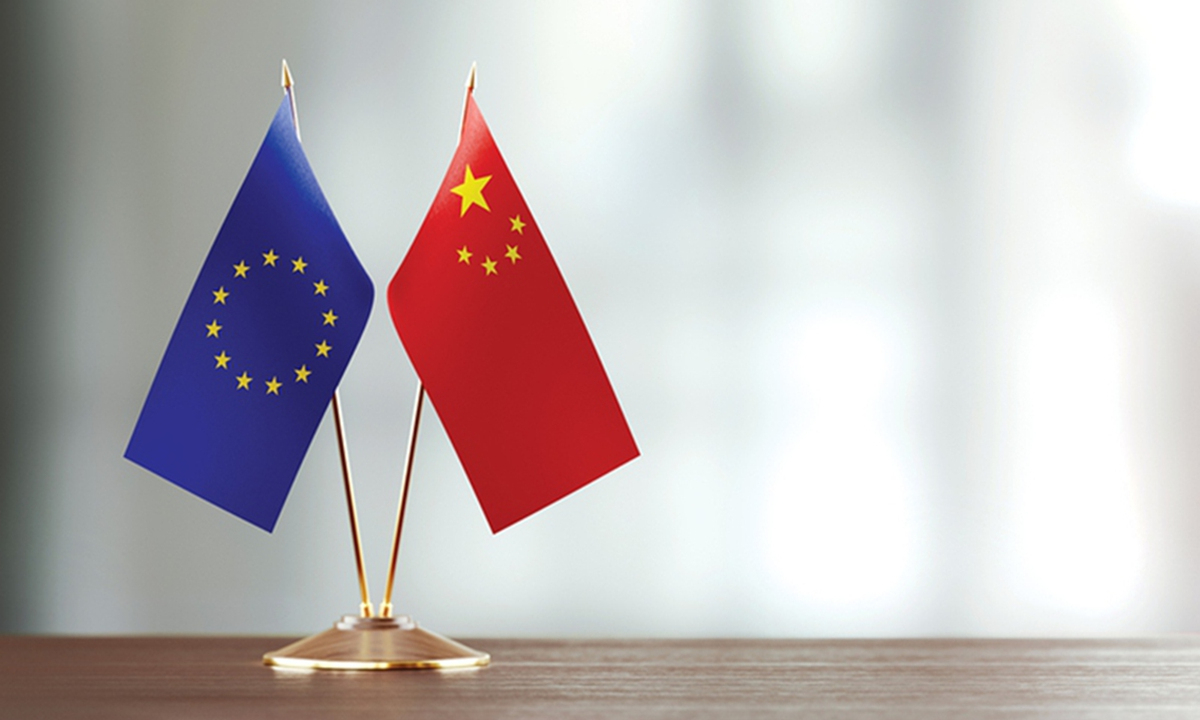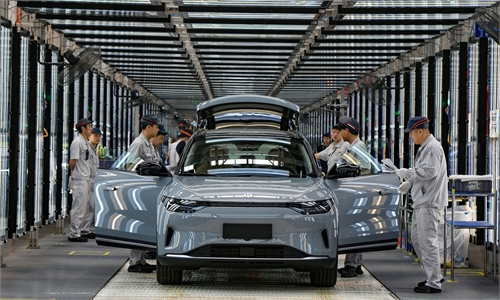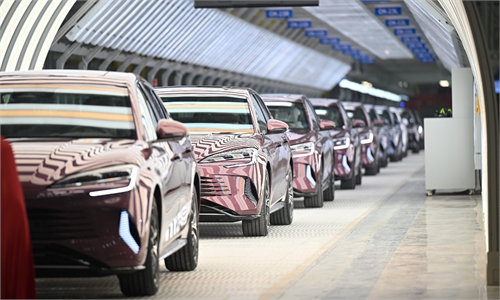EU should figure out the costs of suppressing Chinese companies: Global Times editorial

Photo: VCG
During a visit to Spain on Saturday local time, Chinese Minister of Commerce Wang Wentao said that in accordance with the important consensus reached at the recent trilateral meeting between leaders of China, France and the European Union, he hopes to properly handle economic and trade frictions through dialogue and consultation, accommodate the legitimate concerns of both parties, and avoid an out-of-control escalation of trade frictions. When visiting the Chery-Ebro joint venture factory, Wang said China and Europe have both competition and cooperation. Expanding cooperation and achieving win-win results in healthy competition is the right way to get along.
These statements by Wang have once again provided a direction and means to resolve the recent risk of escalating trade friction between the two sides caused by the EU's discriminatory use of trade tools. This is also consistent with the current widespread calls within the EU. The finance ministers of France and Germany expressed opposition to a trade dispute with China at the recent meeting of G7 finance ministers and central bank governors. European Commission President Ursula von der Leyen also emphasized that "Europe is not in a trade war with China." There are also reports that differences within the EU have become more prominent on the issue of anti-subsidy investigations against China - "Ministers from other countries were queuing up to take potshots at the inquiry." Germany, Sweden, Malta and others have all questioned the possible imposition of additional tariffs.
Not long ago, the US announced a 100-percent tariff on Chinese electric vehicles. US Secretary of the Treasury Janet Yellen and some other Americans publicly called on the EU to act accordingly, which indeed put a lot of pressure on the EU. But if the EU follows the US, this will obviously be more painful for Europe. The US has long shut its door to Chinese electric vehicles, and the tariffs it imposes are just a number. As Germany and other EU countries are deeply integrated with China's automotive industry and supply chains, imposing tariffs will mean a loss of real money and damage to the free trade environment on which Europe's development and prosperity depend.
Not only in trade, but Chinese new-energy companies are also starting to make significant investments in Europe. BYD announced in December 2023 that it would construct an electric car manufacturing plant in Hungary, and in April this year, Chery announced plans to invest in building a factory in Spain. Additionally, there are several "intended investments" from car manufacturers. For example, SAIC Group announced plans to build a vehicle factory in Europe, while Dongfeng Motor Corporation is said to be establishing a factory in Italy. These investments will not only bring capital and production capacity to Europe but also contribute valuable job opportunities locally. Undermining the cooperation between the Chinese and European automotive industries will cause serious losses for both sides.
For the EU, the most important consideration is to clearly understand its own interests and development direction. Obviously, like China, the EU is a steadfast actor in the global response to climate change, and a path of protectionism or even isolationism won't benefit the EU. If Europe's core demand is to enhance its own industrial competitiveness and avoid being outcompeted, simply banning and "driving away" Chinese investments and companies is not creating a "protective barrier" for its own competitive development; rather, it is blocking the door. The deep foundation laid by China and Europe during their long-term cooperation in addressing climate change and industrial collaboration should be seen as an advantageous factor for enhancing EU's competitiveness, not a "risk" that needs to be eliminated.
Actually, the EU should realize that China is still the partner most likely to pursue a path of cooperation and mutual benefit with the EU. The US, due to its intention to contain China, has policies and practices that make even "competitive coexistence" difficult. However, the EU is different. Unless it aims to isolate China and slow down China's technological development, the EU and China can achieve mutual benefit. There's no need to block its own path to development. By adopting an "incremental thinking" approach to expand the EV industry in both China and Europe, and not losing sight of the bigger picture, if the EU and China can engage in deeper and broader cooperation in the new energy vehicle sector, jointly promote electrification and initiate smart technologies, they will make a positive contribution to the transformation and upgrading of the automotive industry.
It is necessary to remember that recent actions by the EU have negatively affected the confidence of Chinese companies investing in the EU. Hopefully the EU perceives this with a sense of crisis rather than thinking that its trade tools are "effective." Although China has not yet proposed specific countermeasures, European media have recently scrutinized EU exports to China that are "potentially retaliated against," ranging from brandy and pork to luxury cars with large displacement engine. Following the US in imposing additional tariffs on Chinese companies will not only cause economic losses to Europe but also seriously harm the existing political mutual trust between China and Europe, thereby losing the broader space for bilateral cooperation and mutual benefit. This is not a profitable account, and Brussels should carefully calculate it.


